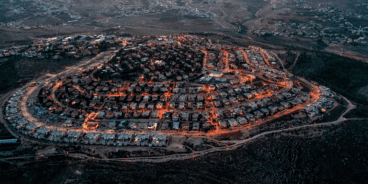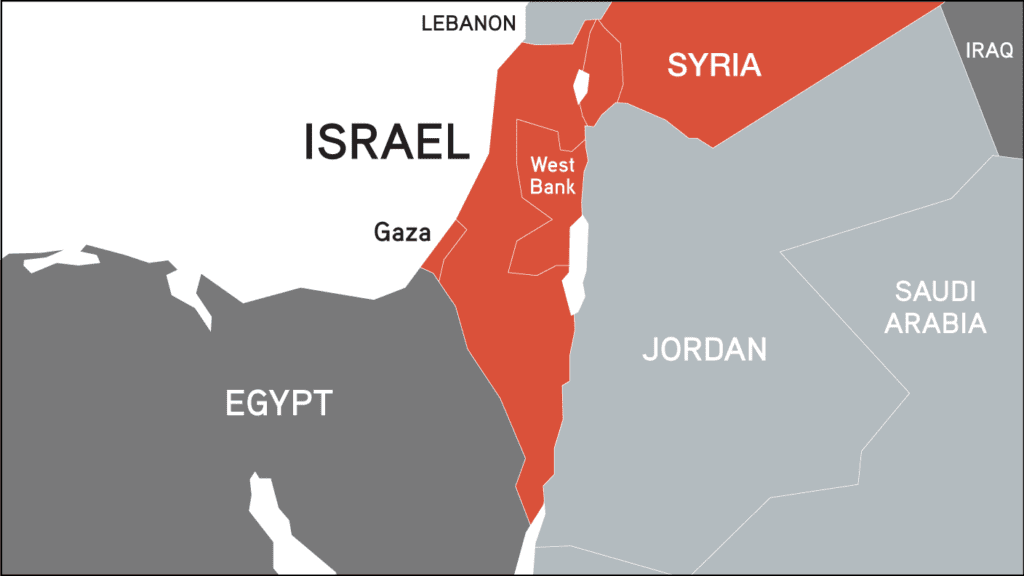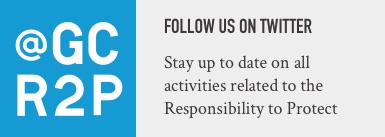
Israel and the Occupied Palestinian Territory
Israeli forces have perpetrated likely atrocity crimes in Gaza and the Occupied West Bank, including possible war crimes, crimes against humanity, ethnic cleansing and genocide. Hamas and other Palestinian armed groups have also perpetrated likely atrocity crimes.
BACKGROUND:
On 7 October Hamas and other Palestinian armed groups launched a deadly assault into Israel. Militants attacked civilian areas and perpetrated flagrant violations of international law, including capturing and forcibly taking hundreds of civilians as hostages. At least 1,200 Israelis were killed, including 36 children, and over 5,400 injured. The UN Office of the Special Representative of the Secretary-General on Sexual Violence in Conflict found that conflict-related sexual violence – including rape, sexualized torture, cruel, inhuman and degrading treatment – was committed. Hamas and other armed groups also continuously fired indiscriminate rockets toward Israel.
Following the attacks, Israel has launched relentless bombardments from air, land and sea across the Gaza Strip, targeting and destroying civilian objects protected under International Humanitarian Law (IHL) in a manner widely characterized as collective punishment. Over 70 percent of civilian infrastructure has been destroyed. Palestinians have also been arbitrarily detained in conditions that include cruel, inhuman and degrading treatment and various forms of sexual violence. Several hospitals have been raided, besieged and forcefully evacuated by the Israeli military, while healthcare and humanitarian workers have been targeted and killed in air raids, as well as arbitrarily detained, forcibly disappeared and subjected to ill treatment by Israeli forces. Since 7 October, over 35,000 Palestinians have been killed, approximately 70 percent of whom are women and children. An estimated 10,000 more individuals are likely missing or buried under rubble of destroyed buildings.
Israel has also imposed a complete siege of Gaza, resulting in acute shortages of water, food and medicines that threaten the survival of 2.3 million Palestinians and creating a dire humanitarian crisis. The electricity supply to Gaza has also been cut off, resulting in an ongoing blackout and contributing to the collapse of hospitals and water and sanitation services. Approximately 1.7 million Palestinians are internally displaced in Gaza and facing successive evacuation orders by the Israeli military. Areas where internally displaced Palestinians have been directed to seek safety are regularly hit by airstrikes and missiles.
The UN Special Rapporteur on the situation of human rights in the Occupied Palestinian Territory has concluded that since 7 October 2023 Israel has committed at least three of the constitutive acts of genocide in Gaza, and that statements made by high-level Israeli military and government officials are evidence of genocidal intent. On 29 December South Africa filed an application before the International Court of Justice (ICJ) instituting proceedings concerning alleged violations of Israel’s obligations under the Genocide Convention in relation to Palestinians in Gaza. The ICJ issued legally binding provisional measures on 26 January ordering Israel to take all measures to prevent the commission of all acts within Article II of the Genocide Convention, to ensure that Israeli military forces do not commit any of these acts, to take measures to prevent and punish direct and public incitement to commit genocide against Palestinians, and to provide basic services, including humanitarian aid, to address adverse conditions of life in Gaza.
Palestinian territory – encompassing the Gaza Strip and West Bank, including East Jerusalem – has been occupied by Israel since 1967. Various UN officials and investigative mechanisms have reaffirmed that Israel’s permanent occupation of Palestinian territory has no legal validity and has resulted in de facto annexation, which may amount to a war crime. The occupation has been characterized by the perpetual expansion of Israeli settlements into Palestinian territory with the aim of altering its ethnic demographics. The Israeli government has established a two-tiered legal and political system that provides comprehensive rights for Jewish Israeli settlers while imposing military rule and control on Palestinians without any basic protections or rights under international law. In March 2022 the UN Special Rapporteur reported that this system satisfies the prevailing evidentiary standard for the crime of apartheid, a crime against humanity.
Since 7 October existing patterns of violence by Israeli settlers in the Occupied West Bank have escalated, with Palestinians facing an average of four attacks per day. The Office of the UN High Commissioner for Human Rights (OHCHR) reported that settlers carrying out these attacks are at times acting with the acquiescence and collaboration of Israeli forces and authorities. At least 16 Israelis, including members of the Israeli forces, have been killed by armed Palestinians. There has also been a sharp increase in unnecessary and disproportionate force by Israeli forces, including airstrikes, violent military tactics during search-and-arrest operations and incursions by armored personnel carriers and bulldozers sent to refugee camps. Over 428 Palestinians have been killed and thousands injured. Israeli forces have also conducted daily mass arrests, as well as denied medical assistance to those injured in attacks. OHCHR has reported a significant increase in extrajudicial executions, mass detentions and enforced disappearances, as well as sexual violence and ill-treatment that may amount to torture against Palestinian detainees.
RECENT DEVELOPMENTS:
Since early May, Israeli forces have intensified bombardments and ground operations in Rafah, where approximately 1.5 million Palestinians from northern Gaza were previously told to seek safety and shelter, as well as in areas of northern Gaza, including Jabaliya Refugee Camp and Gaza City. On 26 May Israeli forces bombed a displacement camp in northwestern Rafah brutally killing dozens of Palestinians. Humanitarian agencies have repeatedly warned that the areas to which Palestinians are being forced to flee are unable to manage an influx of displaced persons.
Israeli forces seized and closed the Rafah aid crossing into Gaza on 7 May, resulting in a near-complete halt of humanitarian aid into southern Gaza. The Kerem Shalom aid crossing into Gaza was also closed by Israeli forces for a few days following a nearby rocket attack by Hamas. Despite its reopening on 8 May, at the time of publication humanitarian agencies report there is a continued lack of safe and logistically viable access to the crossing. Prior to these closings, famine was already imminent or likely underway. OHCHR has documented patterns of Israeli attacks on aid warehouses and against Palestinian civilians collecting or seeking aid, with dozens of incidents of shooting, shelling and targeting since January.
Seven mass graves, containing at least 520 bodies, have been discovered outside three hospitals in Gaza. Some of the bodies were those of women and children, many of whom showed signs of torture and summary executions.
On 20 May Chief Prosecutor of the International Criminal Court (ICC) Karim Khan announced the filing of applications for arrest warrants against three Hamas officials and two Israeli government officials – including Prime Minister Benjamin Netanyahu – that bear criminal responsibility for war crimes and crimes against humanity.
Following an urgent request by South Africa, the ICJ issued additional provisional measures on 28 March and on 24 May, requesting Israel take all measures to ensure the provision of basic services and humanitarian assistance and to immediately halt its military offensive in Rafah, as well as maintain open the Rafah crossing for the unhindered provision of humanitarian assistance.
ANALYSIS:
Israel’s disproportionate attacks on civilians and civilian objects likely amount to war crimes. The mass displacement of Palestinians in Gaza likely amounts to the war crime and crime against humanity of forcible transfer. Ongoing mass displacement and the spread of hostilities southwards, paired with statements by high-level Israeli officials, have increased fears of a possible mass deportation of Palestinians to Egypt.
The imposition of sieges that deprive civilians of goods essential to their survival as a punitive measure may amount to collective punishment, a violation of IHL. While Israel has imposed an air, sea and land blockade of Gaza since 2007, the latest siege likely amounts to intentional starvation of civilians as a method of warfare – a war crime – and may amount to a crime against humanity. The intentional starvation of civilians in Gaza, together with statements from Israeli officials, may amount to a constitutive act of genocide – namely deliberately inflicting on a protected group conditions of life calculated to bring about its physical destruction in whole or in part.
During their attack on Israel, Hamas and other Palestinian armed groups perpetrated likely war crimes, as well as potential crimes against humanity. Hamas’ indiscriminate rocket attacks are also in violation of international law. Since its formation in 1987, Hamas has consistently refused to recognize the State of Israel and has at times proliferated inflammatory and hateful rhetoric against Israelis and Jews. Hamas’ security forces have also committed grave abuses against Palestinians in Gaza, including arbitrary arrests, summary executions and torture. Any use of human shields by Hamas in the context of the current hostilities may amount to a war crime.
There has been no effective accountability for successive cycles of deadly hostilities between Israel and Hamas and other Palestinian armed groups over the past two decades, reinforcing a climate of impunity and enabling environment for further war crimes.
Article 49 of the Fourth Geneva Convention prohibits an occupying power from transferring parts of its civilian population into occupied territory, also known as “settler implantation.” Seizures and demolitions of Palestinian and Bedouin land and property leave communities at risk of forced evictions, arbitrary displacement and forcible transfer. Israel’s permanent occupation endangers the cultural existence of the Palestinian people and violates their right to self-determination.
RISK ASSESSMENT:
-
- Bombardments, ground offensives and siege tactics amounting to likely war crimes and crimes against humanity.
- Ongoing evacuation orders likely amounting to crimes of forced displacement and forcible transfer, increasing risks of ethnic cleansing and genocide.
- Violence, attacks, mass arrests and likely forcible transfer in the Occupied West Bank.
- Institutionalized systematic racial oppression and discrimination against Palestinians amidst perpetual occupation amounting to de facto and illegal annexation of Palestinian land.
- Dehumanizing hate speech and incitement to violence between groups.
NECESSARY ACTION:
All likely war crimes and crimes against humanity must halt immediately. Hamas and other Palestinian armed groups must safely and unconditionally release all individuals taken hostage. All states must cease arms exports to Israel to ensure they are not aiding and abetting atrocities in Gaza, as well as apply other economic and political measures necessary to ensure respect for international law and the implementation of the legally binding UN Security Council (UNSC) Resolution 2728. Israel should immediately lift the siege of Gaza. A permanent ceasefire must be urgently reached and monitored by an independent, international body. All parties should condemn anti-Semitic, anti-Arab and Islamophobic hate speech and leaders must refrain from spreading and engaging in dehumanizing rhetoric and actions. States must extend their full support to the UN Relief and Works Agency for Palestine Refugees in the Near East’s vital mandate.
Israel must immediately implement the ICJ’s provisional measures and its allies must ensure Israel’s compliance. States parties to the Genocide Convention should support proceedings before the ICJ and refrain from attempts to impede the independent work of the Court or discredit the merits of the dispute. The ICC must be allowed to conduct its mandate with independence and impartiality and all states should cease any impediments, intimidation, retaliation or improper influences against the Court and its officials. Israel should ratify the Rome Statute of the ICC and cooperate with all UN-mandated investigative mechanisms.
The root causes of violence and atrocities must also be addressed. Israel must lift its blockade on Gaza and cease illegal settlement-related activity and apartheid policies. Israel should also end the occupation of Palestinian territory and collective punishment of Palestinians. All parties should work toward a sustainable political solution consistent with international law and various UNSC resolutions.
Related Content


Atrocity Alert No. 403: Israel and the Occupied Palestinian Territory, Sudan and the UN Human Rights Council


